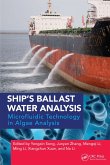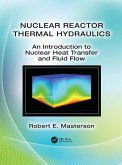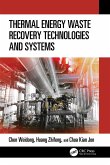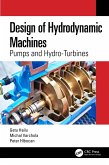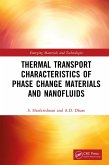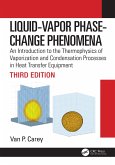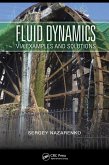Ship's Ballast Water Analysis (eBook, ePUB)
Microfluidic Technology in Algae Analysis
Redaktion: Song, Yongxin; Li, Na; Xuan, Xiangchun; Li, Ming; Li., Mengqi; Zhang, Junyan
54,95 €
54,95 €
inkl. MwSt.
Sofort per Download lieferbar

27 °P sammeln
54,95 €
Als Download kaufen

54,95 €
inkl. MwSt.
Sofort per Download lieferbar

27 °P sammeln
Jetzt verschenken
Alle Infos zum eBook verschenken
54,95 €
inkl. MwSt.
Sofort per Download lieferbar
Alle Infos zum eBook verschenken

27 °P sammeln
Ship's Ballast Water Analysis (eBook, ePUB)
Microfluidic Technology in Algae Analysis
Redaktion: Song, Yongxin; Li, Na; Xuan, Xiangchun; Li, Ming; Li., Mengqi; Zhang, Junyan
- Format: ePub
- Merkliste
- Auf die Merkliste
- Bewerten Bewerten
- Teilen
- Produkt teilen
- Produkterinnerung
- Produkterinnerung

Bitte loggen Sie sich zunächst in Ihr Kundenkonto ein oder registrieren Sie sich bei
bücher.de, um das eBook-Abo tolino select nutzen zu können.
Hier können Sie sich einloggen
Hier können Sie sich einloggen
Sie sind bereits eingeloggt. Klicken Sie auf 2. tolino select Abo, um fortzufahren.

Bitte loggen Sie sich zunächst in Ihr Kundenkonto ein oder registrieren Sie sich bei bücher.de, um das eBook-Abo tolino select nutzen zu können.
This book introduces technologies and devices that are used for the analysis of treated ballast water. Emphasis is placed on the separation, manipulation, detection, counting and sizing of microalgae in a microfluidic chip which shows great potential for developing miniatured analysis devices.
- Geräte: eReader
- mit Kopierschutz
- eBook Hilfe
Andere Kunden interessierten sich auch für
![Ship's Ballast Water Analysis (eBook, PDF) Ship's Ballast Water Analysis (eBook, PDF)]() Ship's Ballast Water Analysis (eBook, PDF)54,95 €
Ship's Ballast Water Analysis (eBook, PDF)54,95 €![Nuclear Reactor Thermal Hydraulics (eBook, ePUB) Nuclear Reactor Thermal Hydraulics (eBook, ePUB)]() Robert E. MastersonNuclear Reactor Thermal Hydraulics (eBook, ePUB)215,95 €
Robert E. MastersonNuclear Reactor Thermal Hydraulics (eBook, ePUB)215,95 €![Thermal Energy Waste Recovery Technologies and Systems (eBook, ePUB) Thermal Energy Waste Recovery Technologies and Systems (eBook, ePUB)]() Weidong ChenThermal Energy Waste Recovery Technologies and Systems (eBook, ePUB)52,95 €
Weidong ChenThermal Energy Waste Recovery Technologies and Systems (eBook, ePUB)52,95 €![Design of Hydrodynamic Machines (eBook, ePUB) Design of Hydrodynamic Machines (eBook, ePUB)]() Getu HailuDesign of Hydrodynamic Machines (eBook, ePUB)126,95 €
Getu HailuDesign of Hydrodynamic Machines (eBook, ePUB)126,95 €![Thermal Transport Characteristics of Phase Change Materials and Nanofluids (eBook, ePUB) Thermal Transport Characteristics of Phase Change Materials and Nanofluids (eBook, ePUB)]() S. HarikrishnanThermal Transport Characteristics of Phase Change Materials and Nanofluids (eBook, ePUB)47,95 €
S. HarikrishnanThermal Transport Characteristics of Phase Change Materials and Nanofluids (eBook, ePUB)47,95 €![Liquid-Vapor Phase-Change Phenomena (eBook, ePUB) Liquid-Vapor Phase-Change Phenomena (eBook, ePUB)]() Van P. CareyLiquid-Vapor Phase-Change Phenomena (eBook, ePUB)126,95 €
Van P. CareyLiquid-Vapor Phase-Change Phenomena (eBook, ePUB)126,95 €![Fluid Dynamics via Examples and Solutions (eBook, ePUB) Fluid Dynamics via Examples and Solutions (eBook, ePUB)]() Sergey NazarenkoFluid Dynamics via Examples and Solutions (eBook, ePUB)65,95 €
Sergey NazarenkoFluid Dynamics via Examples and Solutions (eBook, ePUB)65,95 €-
-
-
This book introduces technologies and devices that are used for the analysis of treated ballast water. Emphasis is placed on the separation, manipulation, detection, counting and sizing of microalgae in a microfluidic chip which shows great potential for developing miniatured analysis devices.
Dieser Download kann aus rechtlichen Gründen nur mit Rechnungsadresse in A, B, BG, CY, CZ, D, DK, EW, E, FIN, F, GR, HR, H, IRL, I, LT, L, LR, M, NL, PL, P, R, S, SLO, SK ausgeliefert werden.
Produktdetails
- Produktdetails
- Verlag: Taylor & Francis eBooks
- Erscheinungstermin: 29. November 2024
- Englisch
- ISBN-13: 9781040226582
- Artikelnr.: 72277010
- Verlag: Taylor & Francis eBooks
- Erscheinungstermin: 29. November 2024
- Englisch
- ISBN-13: 9781040226582
- Artikelnr.: 72277010
- Herstellerkennzeichnung Die Herstellerinformationen sind derzeit nicht verfügbar.
Yongxin Song is a professor in the College of Marine Engineering, Dalian Maritime University (DMU). He received his PhD degree in marine engineering from Dalian Maritime University in 2012. Since joining DMU, he has worked as an assistant professor (2004), associate professor (2012) and professor (2017-now). He is a creative scientist at the forefront of exploring new sensing methods and Lab-on-chip devices and their applications in the field of marine engineering. He is committed to making breakthroughs in any topic of microfluidic sensing technology where using conventional approaches to shrink the devices is challenging. His research areas include mechanical engineering, colloid and interface, and electrical engineering. Dr Song pioneered several groundbreaking studies in microfluidic chips¿based marine pollution analysis, such as electric and surface charge¿based living algae detection. He was the local co¿chair of the 2016 International Conference of Microfluidics and Nanofluidics and Lab¿on¿chip; guest editor and member of the topic advisory board of the Micromachines journal, as well as section chair of the 2018 International Conference of Microfluidics and Nanofluidics and Lab¿on¿chip. He has published more than 100 high¿quality international journal papers, with more than twenty patents licensed. Junyan Zhang is currently an associate professor in the College of Marine Engineering, Dalian Maritime University (DMU), Dalian, China. His research interests include electrokinetic phenomena, microfluidics and nanofluidics, colloid and interface science, ballast water detection, as well as flexible devices for sensing. He has published more than ten high¿quality papers. In addition, he has been working as a fourth engineer on ocean¿going ships for over 18 months. He was granted funding (2021-2023) by the National Natural Science Foundation of China for the project titled "Characteristics of microalgae surface charge and analysis of microalgae viability in ship ballast water." He has developed a novel method to evaluate the viability of microalgae in ballast water through an aqueous two¿phase system. Mengqi Li is an associate professor in the College of Marine Engineering, Dalian Maritime University (DMU). He received his PhD degree in Mechanical engineering from the Universityof Waterloo in 2018. From 2019 to 2020, he worked at the University of Waterloo as a Postdoc Fellow. Since joining DMU in 2020, he has worked as an associate professor. His research interests include microfluidics and nanofluidics, colloid and interface science, soft matter, electrokinetic phenomena, as well as electrochemical detection techniques. He has published more than 30 high¿quality papers and applied more than ten patents. Moreover, he harbors an interest in ballast water treatment and detection techniques. He has developed a novel technique for identifying the viability of microalgae through liquid-liquid interface under electric field, which has attracted great attention. Ming Li is currently an associate professor and NHMRC Emerging Leadership Fellow in the School of Mechanical and Manufacturing Engineering at the University of New South Wales (UNSW), Sydney, Australia. She obtained her PhD from the University of Wollongong in Australia and conducted postdoctoral training at the University of Houston and the University of California, Los Angeles, in the USA. She was a lecturer and then senior lecturer at Macquarie University before joining UNSW. Her research interests include microfluidics, biosensors, lab¿on¿ächip technology and micro¿electro¿mechanical systems (MEMS). Xiangchun Xuan is a professor of mechanical engineering at Clemson University. He received his PhD degree from the Department of Mechanical and Industrial Engineering at the University of Toronto in 2006 and Bachelor of Engineering degree from the University of Science and Technology of China in 1995. He was a recipient of the NSF CAREER Award in 2012 and the Clemson University Distinguished Doctoral Mentoring Award in 2022. His research interests cover the fundamentals and applications of microfluidics with a special interest in particle and cell manipulations. He has published over 150 journal articles with a Google Scholar h¿index of 55. Na Li received her PhD degree in Environmental Science and Engineering from Dalian Maritime University, Dalian, China in 2020. She completed postdoctoral studies at the Marine Engineering College of Dalian Maritime University. Her research interests include environmental chemistry, molecular biology and aquatic toxicology. In addition, she has received several tech grants, including those for basic scientific projects at universities, Science and Technology Talent Innovation Support Policy projects
1. Introduction and Basic Concepts 2. Resistive Pulse Sensing of Particles
and Microalgae 3. Automatic Separation and Manipulation of Microalgae 4.
Smartphone-Based Lab-on-Chip Device for Living Algae Detection 5.
Electrostatic Charges on Microalgae Surface: Mechanism and Ballast Water
Analysis 6. Surface Charge-Based Living Microalgae Detection in a
Microchannel 7. Dielectrophoresis-based cell viability assessment 8.
Commercial Devices for Living Algae Detection
and Microalgae 3. Automatic Separation and Manipulation of Microalgae 4.
Smartphone-Based Lab-on-Chip Device for Living Algae Detection 5.
Electrostatic Charges on Microalgae Surface: Mechanism and Ballast Water
Analysis 6. Surface Charge-Based Living Microalgae Detection in a
Microchannel 7. Dielectrophoresis-based cell viability assessment 8.
Commercial Devices for Living Algae Detection
1. Introduction and Basic Concepts 2. Resistive Pulse Sensing of Particles
and Microalgae 3. Automatic Separation and Manipulation of Microalgae 4.
Smartphone-Based Lab-on-Chip Device for Living Algae Detection 5.
Electrostatic Charges on Microalgae Surface: Mechanism and Ballast Water
Analysis 6. Surface Charge-Based Living Microalgae Detection in a
Microchannel 7. Dielectrophoresis-based cell viability assessment 8.
Commercial Devices for Living Algae Detection
and Microalgae 3. Automatic Separation and Manipulation of Microalgae 4.
Smartphone-Based Lab-on-Chip Device for Living Algae Detection 5.
Electrostatic Charges on Microalgae Surface: Mechanism and Ballast Water
Analysis 6. Surface Charge-Based Living Microalgae Detection in a
Microchannel 7. Dielectrophoresis-based cell viability assessment 8.
Commercial Devices for Living Algae Detection

